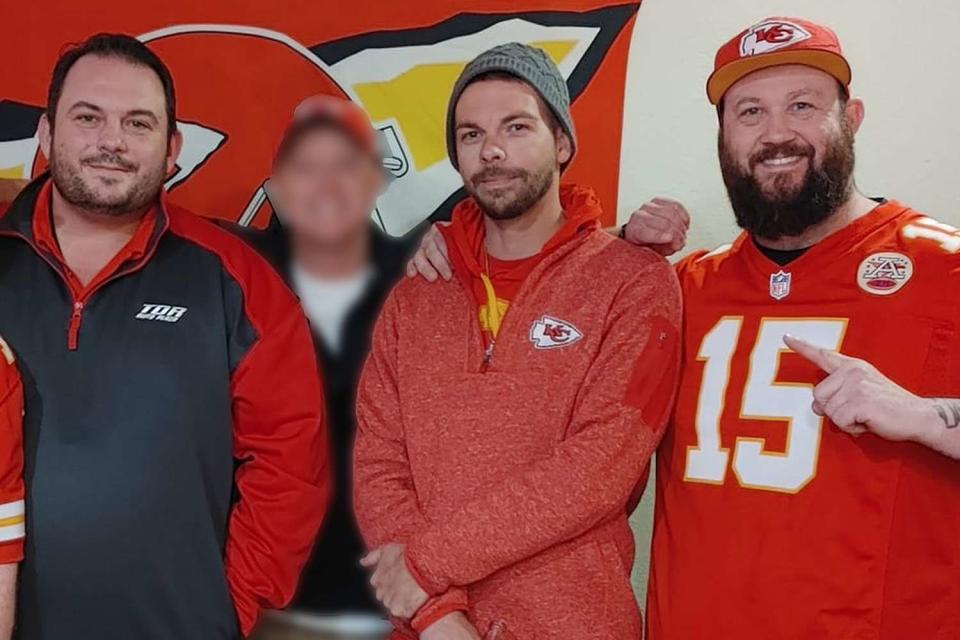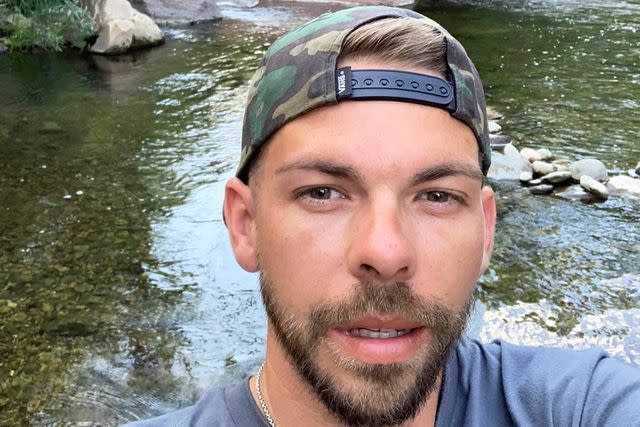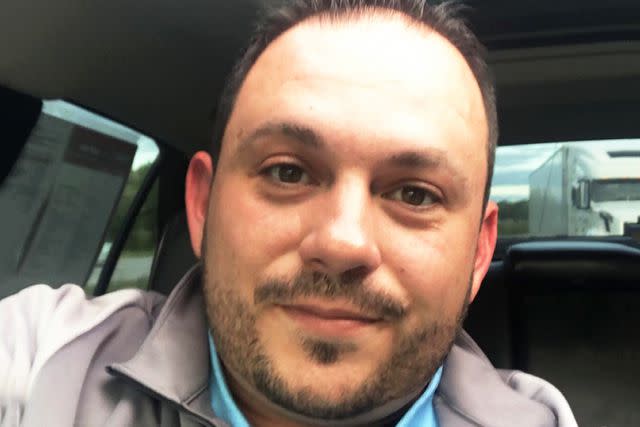Are Criminal Charges Likely After Drugs Found in Bodies of 3 Deceased Kansas City Chiefs Fans?
Toxicology results reportedly note cocaine and fentanyl in the men’s systems

Ricky Johnson;Facebook
David Harrington, Clayton McGeeney and Ricky Johnson were found dead in their friend's backyard Jan. 9.Three men were found dead in their friend’s backyard Jan. 9 — two days after they watched a Kansas City Chiefs football game together
Police have not confirmed the preliminary toxicology report, which indicates the men had cocaine and fentanyl in their systems
Police have filed the case as a death investigation and have not announced any criminal charges
Several weeks after three Kansas City Chiefs fans were found dead in their friend’s backyard, early toxicology results reportedly indicate the men had cocaine and fentanyl in their systems, according to reports by Fox4KC and TMZ, which cite sources familiar with the results.
Police have said multiple times that no foul play is suspected in the deaths. But as the mysterious case garners speculation from both the public and grieving family members who say they still don’t have answers from police, legal experts weigh in on what the evidence means and how the ongoing case could proceed in a court of law.
“Any fentanyl in the systems of these men is pretty suspicious and suggests something bad happened to them,” says Ben Trachtenberg, an associate dean and professor at the University of Missouri School of Law. He adds that if the case turns out to have a criminal component, “The question is: Who do you want to charge?”

Facebook (2)
Clayton McGeeney, David Harrington and Ricky JohnsonThe three men – David Harrington, Clayton McGeeney, and Ricky Johnson – were found by McGeeney's fiancé who came across their frozen bodies two days later while searching for them Jan. 9.
Related: 3 Dead Kansas City Chiefs Fans' Early Toxicology Report Shows Traces of Substances: Report
Jordan Willis, who hosted the party, has spoken through an attorney, saying that in the two days between the football game and the discovery of his friends’ bodies, he did not notice the men dead in his backyard or their cars still in the neighborhood.
Family and friends of the victims told WDAF that they repeatedly attempted to contact Willis about his missing friends before their bodies were found. However, in a statement previously obtained by PEOPLE, John Picerno, a lawyer representing Willis, claimed his client "did not receive any" texts or calls about the friends. The attorney said his client did receive a message on Facebook from a loved one, but claimed Willis didn't see it until after being contacted by police.
The toxicology report has not been publicly released and the Kansas City Police Department has not confirmed the reported results as of Friday.

Clayton McGeeney/Facebook
Clayton McGeeneyIn a statement to PEOPLE Friday, Alayna Gonzalez, a spokeswoman for the department, said there were no plans at this time to release "additional details or reports of this case" to the media. Gonzalez called the case “an ongoing death investigation.”
Related: Brother Suspects 3 Friends Found Dead in Yard After Chiefs Game Had Something ‘In Their System'
Tragedies are not always criminal, Trachtenberg notes, and even if a crime was committed, a viable criminal case could hinge on what the remaining two men (another left early) who survived the party might know — and what they are willing to tell the police.

Ricky Johnson/Facebook
Ricky Johnson“There are a couple of possibilities of what happened here,” Trachtenberg says, listing off hypothetical reasons for the men’s deaths. “One: they knew they were taking drugs and something about the drugs went horribly wrong. That has certainly happened before.” (Public health experts blame fentanyl for the majority of overdose deaths in the United States. Oftentimes, the person unknowingly consumes fentanyl, which is sometimes laced with other drugs.)
“Another possibility,” Trachtenberg says. “Is that somehow these three men had drugs in their system completely unknowingly. The idea that someone slipped a drug into something they were eating or drinking is at least possible.”
In cases like these, Trachtenberg says state and federal prosecutors have a track record of bringing criminal charges of manslaughter and even murder.

David Harrington/Facebook
David HarringtonBut, he warns, such cases often require someone with inside knowledge of what happened. “Usually, in an ordinary drug sale neither the buyer nor the seller has any interest in talking to the police," he said, adding, “It’s not likely there’s an envelope hanging around with the seller’s business card.”

Ricky Johnson/Facebook
David Harrington, Clayton McGeeney and Ricky JohnsonPhysical and digital evidence in the case, is also important, Trachtenberg says. If drugs are found on the premises, they could be tested and potentially even traced back to a seller.
Additionally, investigators will likely comb through phone and social media records to determine if and when calls, texts and other messages were sent and who knew what when.
Related: Inside the Mysterious Deaths of 3 Men Found Dead in Friend's Frozen Yard: What We Know So Far
As for the toxicology report, Dimi Maffia, a clinical pharmacist specialist based in San Diego, warns it’s too early to conjecture.
Want to keep up with the latest crime coverage? Sign up for PEOPLE's free True Crime newsletter for breaking crime news, ongoing trial coverage and details of intriguing unsolved cases.
“We have to wait until the results are finalized,” she says. “Only then could a toxicologist say if the combination of those drugs at those doses led to their deaths, or at least contributed to it.”
Trachtenberg agrees. “All of that is tremendously important if someone is bringing a criminal case,” he says.
For more People news, make sure to sign up for our newsletter!
Read the original article on People.


